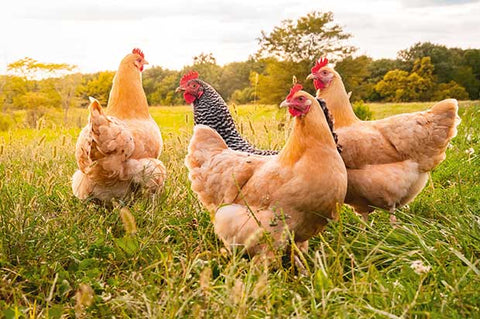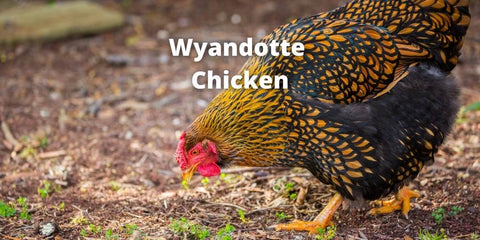🐔 The Ultimate Fun Guide to Happy, Healthy Hens (Because Your Chickens Deserve the Best!)
Hey chicken lovers! Whether you’re a seasoned flock parent or just starting out on your clucky adventure, keeping your hens happy and healthy is where the magic happens. Spoiler alert: happy hens = more eggs, less drama, and a whole lot of backyard entertainment. 🥚🎉
So buckle up, because here’s your fun-tastic guide to making your chickens the happiest, healthiest (and coolest) cluckers on the block!
1️⃣ Feed ’Em Like Royalty 👑🍽️
Your hens aren’t just any old birds—they’re egg-producing machines! They need top-notch grub to keep the eggs coming.
-
Think of layer pellets as their gourmet feast.
-
Fresh water is their favorite thirst-quencher—keep it flowing like a spa day.
-
Bonus points for treats like leafy greens or the occasional crunchy worm snack (their version of candy!).
2️⃣ Give ’Em Space to Strut 🏡💃
Chickens love a roomy coop and plenty of yard to scratch and dance around.
-
About 3–4 square feet per hen in the coop and 8–10 square feet in the run keeps the peace.
-
A cozy, safe coop means sweet dreams and no sneaky predators crashing the party.
-
Nest boxes? Make ‘em comfy and inviting — hens are picky about their egg-laying thrones!
3️⃣ Keep It Clean and Comfy 🧹✨
Nobody likes a messy home—not even your hens!
-
Fresh, fluffy bedding like hemp hurd or pine shavings keeps feet happy and dust down.
-
Clean that coop regularly so it’s fresh and cozy, not a stinky sweat lodge.
-
Good airflow = happy lungs. Win-win!
4️⃣ Let ’Em Be Chickens 🐥🎉
Scratching, pecking, dust bathing—these aren’t just cute antics, they’re essential chicken hobbies.
-
Create a dust bath zone filled with sandy, dry goodness.
-
Scatter treats to encourage foraging fun.
-
Add perches so they can sleep like royalty, high and safe.
5️⃣ Keep an Eye Out 👀🩺
Your hens can’t tell you when they’re feeling off, so be their detective.
-
Look for signs like droopy heads, weird poops, or sulky behavior.
-
Keep pesky parasites like mites and lice at bay — nobody likes unwanted guests!
-
A quick checkup can save a lot of headaches down the road.
6️⃣ Stress? No Thanks! 🚫😰
Chickens are drama queens (and kings) when stressed—less laying, more squawking.
-
Keep routines steady—feed, light, and bedtime should be like clockwork.
-
Avoid overcrowding; nobody likes a cluck-fight.
-
Introduce new flock members slowly to avoid hen-tensions.
7️⃣ Light Up Their Lives 💡🌞
Egg production loves daylight—think of it as your hens’ version of a morning coffee boost.
-
Natural sunlight is best, but winter days can be tough.
-
A little coop light after sunset keeps the egg factory humming.
8️⃣ Spice Up Their World 🌿🎲
Bored hens are naughty hens. Keep their days exciting!
-
Hang a cabbage for a veggie piñata.
-
Toss pebbles or create ramps and toys for fun workouts.
-
Remember: Chickens are social butterflies, so keep them in good company.
9️⃣ Don’t Forget the Calcium Boost! 🥚💪
Eggshells need calcium—think of it as the eggs’ armor.
-
Offer oyster shells or crushed eggshells on the side—they’ll gobble it up!
🔟 Lock Down That Coop! 🛡️🚪
Protect your squad from sneaky foxes, raccoons, and neighborhood cats.
-
Use sturdy wire mesh and locks.
-
Close them up tight at night—no all-night parties allowed!
🎉 Final Cluckin’ Thoughts
Happy hens = happy life! With yummy food, comfy digs, fun activities, and a little TLC, your chickens will be the envy of the neighborhood—laying eggs and living their best lives.
So go on, spoil those cluckers—they deserve it!
Want to upgrade your coop game? Check out Chook Manor for all your feed, bedding, and coop gear needs.
Need help? We’re just a cluck away! 🐔💬
Ready to be the coolest chicken parent around? Let’s get clucking!
– The Chook Manor Team 🎉🐓




